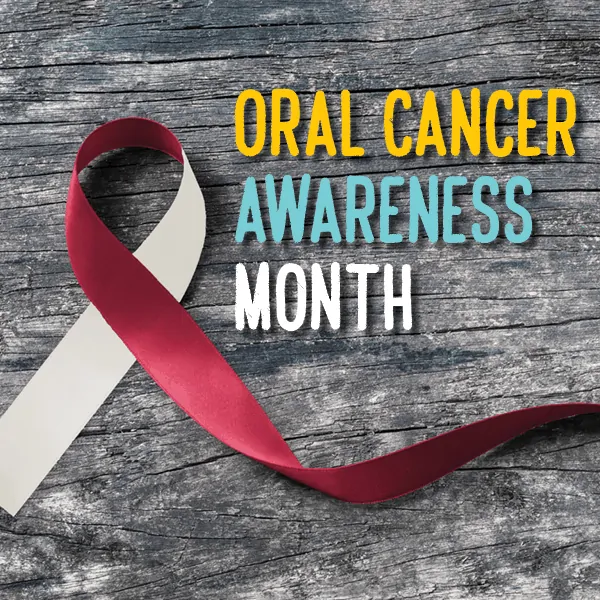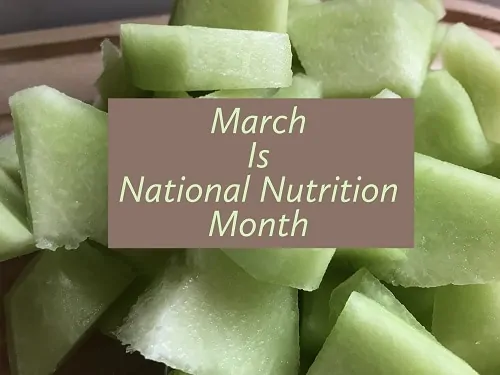Why You Should Always Wear a Mouthguard When Playing Sports

April is recognized as National Facial Protection Month and serves to promote the importance of wearing proper mouth protection during sports. At our dental office in Douglasville, this is a topic we want to talk about in hopes that we can help guard our patients’ smiles from the dangers of contact sports. Join us as we cover some of the most important reasons you should always wear a mouthguard when hitting the court or field.
Sport Injuries by the Numbers
Participating in sports can benefit us in a lot of ways. Sports help keep us active and healthy, and they build strong team and communication skills. But there’s always the risk of injury. While injuries can affect even the best, most experienced athletes, an alarming amount of sports injuries happen to children. In fact, a study published by Johns Hopkins concluded that over 3.5 million kids under age 15 sustain an injury while playing a sport or participating in a similar activity. Of course a lot of sport injuries result in a sprain, strain, or even broken bones, but what’s most concerning to your dentist in Douglasville is that many of these injuries are to the face or head.
Who Has the Biggest Risk?
Even though any athlete can get hurt, there are some sports that put you at increased risk for a mouth injury. Any contact sport such as football, soccer, or basketball poses the biggest chance for a mouth injury, but which sport sees the most? The answer may surprise you. According to a study published by dentalcare.com and two research dentists, basketball has the highest mouth injury rate in both men and women. This could be in part to the fact that a mouthguard is not always required. However, the American Dental Association recommends wearing a mouthguard, even if it’s not in the rulebook. Besides protecting teeth against chips, breaks, or being totally knocked out, mouthguards can help reduce the risk of concussion, too.
Different Types of Mouthguards
There are typically two types of mouthguards — the boil-and-bite variety found in sporting goods stores and custom-made mouthguards created by a dentist. The stock mouthguards you can buy at stores are better than nothing, but they’re usually uncomfortable, don’t fit as snugly as they should, and oftentimes spend more time being chewed on than protecting teeth. The best way to protect teeth while playing sports is by getting a custom-made mouthguard. These professional-grade sports mouthguards are molded to fit around each and every tooth and are really comfortable. Speaking with them in is easier than a boil-and-bite guard, too.
Before you or your child gears up for a sporting event, make sure you have a well fitting mouthguard and be committed to wearing it every time for the whole game. If you want the ultimate in mouth protection, we welcome you to call our Douglasville dental office to discuss the best sports mouthguard for you.
How a Dental Checkup Can Save Your Life

Oral cancer diagnosis is on the rise with an estimated 51,540 new cases expected in 2018. At our dental office in Douglasville, we understand how serious this life threatening disease is. In fact, the American Cancer Society projects that over 10,000 people in the United States will die from it this year. However, while oral cancer can lead to death, the five-year survival rate is 65%. Part of what contributes to this relatively high chance of survival is due to early diagnosis. During this Oral Cancer Awareness Month, we’d like to help raise awareness by sharing the importance of regular dental checkups that just might save your life.
Early Diagnosis Means Higher Chance of Survival
Oral cancer can be treated successfully. But the chance of survival greatly increases if the disease is caught in the early stages before the cancer has a chance to spread. According to the American Cancer Society, survival rates for different types of oral cancer vary depending on how much time its had to progress. They classify these progressions into three stages including:
- Local – Meaning the cancer has only affect the area which it started.
- Regional – This term is used for cancer that has spread to other tissues close by the original infection site.
- Distant – Cancer classified as distant has spread even farther to more areas of the body.
Some of the most common areas affected by oral cancer, along with their various five-year survival rates based on the stages listed above can be found in the table below, courtesy of the American Cancer Society.
| Lip | Tongue | Floor of the Mouth | |
| Local | 93% | 78% | 75% |
| Regional | 48% | 63% | 38% |
| Distant | 52% | 36% | 20% |
How To Catch Oral Cancer Early
The most effective way to diagnose oral cancer early when treatment is more successful is by recognizing the signs. Some of the most common signs of oral cancer include:
- A sore in the mouth that doesn’t go away and bleeds easily
- A chronic white or red area
- Difficulty swallowing, chewing, or moving the tongue
- A lump on the cheek, tongue, or throat
- Coughing up blood
Additionally, seeing your dentist in Douglasville at least every six months can proactively monitor your overall oral health, including screening for oral cancer. Your dental team is trained to look for any areas that may be concerning. Regular dental checkups can help catch oral cancer early so that you can get treatment as soon as possible in order to increase your chances of beating it.
If you notice any potential problem areas or it’s just been awhile since you’ve been to the dentist, we’re always welcoming new patients and encourage you to call our Douglasville dental office to schedule an appointment. We’re dedicated to protecting your smile and your overall health.
Is Your Family Getting Enough Calcium?

Calcium is most commonly noted as being a crucial mineral for strong bone development. However, at our dental office in Douglasville we also know that calcium is an essential part of building strong and healthy teeth. But just how much calcium does your family need?
The Importance of Calcium
Before we dive into how much calcium each member of your family needs, let’s take a quick look at why a steady intake of it is important. Our bodies need calcium in order to function properly, and our systems will pull what they need out of what we have in our bones. In fact, the calcium found in bones and teeth is repeatedly removed, and it needs to be replaced. This is where eating a diet high in calcium helps replenish what’s lost. This is particularly important in young children when bones are developing and growing, and for older adults.
Calcium Doesn’t Stand Alone
We wouldn’t be giving you great advice if we didn’t tell you that a solid calcium intake is only half the battle. In order for the calcium to be absorbed and aid in tooth and bone development and strength, it needs vitamin D. Vitamin D is an essential vitamin, meaning your body relies on it to function. Make sure your family isn’t only eating a diet rich in calcium, but also vitamin D. Some foods that can help increase levels of vitamin D include:
- Dairy products
- Egg Yolks
- Fish such as salmon and herring
How Much Calcium is Enough?
The appropriate amount of calcium varies depending on age and gender. Here are the recommended daily doses according to the Food and Nutrition Board (FNB).
- 0-6 months = 200 mg
- 7-12 months = 260 mg
- 1-3 years = 700 mg
- 4-8 years = 1,000 mg
- 9-18 years = 1,300 mg
- 19-50 years = 1,000 mg
- 51-70 years = 1,000 mg for males, 1,200 mg for females
- 71+ years = 1,200 mg
Foods High in Calcium
When looking for calcium-rich foods, your Douglasville dentist wants you to consider going outside of the dairy aisle. There are plenty of non-dairy foods that pack a mean calcium punch including:
- Sardines
- Soymilk
- Orange juice
- Calcium-fortified cereal
Remember, besides eating a diet high in calcium, it’s also important to eat a variety of food groups at every meal.
At our Douglasville dental office, we’re in the business of taking care of your family’s smiles. One way to ensure a lifetime of strong, beautiful teeth is to get the recommended daily amount of vitamin D and calcium. And of course, we always recommend proper brushing and regular dental visits.
Good for the Body, Good for the Mouth

What we put into our bodies can certainly affect how we feel and how healthy we are. But eating the right foods to fuel your body goes beyond enhancing overall health. During this National Nutrition Month, your Douglasville dentist wants to let all of our patients know how proper nutrition can also benefit your oral health.
What Exactly is Proper Nutrition?
The basics of eating right include reducing your fat and sugar intake while upping the amount of nutrient rich foods. But how much of what things should you be eating? That’s where things aren’t so simple. Ever since the original Food Pyramid Guide was published by the United States Department of Agriculture (USDA) in 1992, nutritional recommendations have shifted two more times. The current standards are reflected in MyPlate and vary depending on age, gender, height, weight, and daily activity level. However, most of the common rules of thumb remain the same including focusing on eating plenty of:
- Fruits
- Vegetables
- Whole Grains
- Lean Proteins
- Dairy
How Does Good Nutrition Relate to Oral Health?
The body’s response to eating “bad” foods and drinks increases the likelihood of someone experiencing oral health issues and diseases. Let’s look at foods that are high in sugar, for example. Sweets and beverages like soda and even juices packed with sugar attack tooth enamel. If they’re not rinsed away or are left exposed to the teeth for long periods of time, they will work away at and erode the protective tooth layer. Without this barrier, teeth are more susceptible to cavities and sensitivity. Although almost every food contains some amount of sugar, even the good foods we’re supposed to eat, try your best to stay away from items that have added sugars and remember to read nutritional labels.
Beware of the Hidden Sugars
Sugar content in the sweeter foods that you choose for you and your family isn’t the only thing your dentist in Douglasville is wary of. There are hidden sugars everywhere, even in places that don’t taste sweet. Foods that contain a lot of carbohydrates can actually raise blood glucose levels and effect the body the very same way actual sugar does. Since these carbs end up breaking down into simple sugars, they put teeth at the same risk for decay as eating a sweet treat.
Eat Well, Protect Your Smile
At our dental office in Douglasville, we strive to keep our patients healthy by being a key member of their health care team. Encouraging a healthy, well-balanced diet is a great way to ensure not only a healthy body, but also a healthy mouth. If you’re looking to become a healthier version of yourself and get your smile in its best shape yet, we welcome you to schedule an appointment with us today.
National Pet Dental Health Month

Every February, the American Veterinary Medical Foundation (AVMF) sponsors National Pet Dental Health Month to raise awareness of the importance of proper dental care for our furry best friends. While our Douglasville dental office doesn’t treat these cuddly critters, we know a lot of our patients have pets, and we’d like to provide them tips on how to care for the furrier members of their families.
Brushing is Important for Pets Too
You know your dentist in Douglasville encourages each and every patient to brush their teeth twice a day, every day. Now while it’s not necessary to brush your pet’s teeth that often, it is important that you do it occasionally. Typically brushing two to three times a week will do wonders in keeping their mouths healthy. While brushing your pet’s teeth may be a challenge at first, doing it regularly can help make it a routine. When you start, take a piece of gauze and a pet-friendly toothpaste to gently massage your pet’s teeth in tight circles. This small step can really help reduce plaque and tartar buildup. But good brushing doesn’t end there. You should take your pet to get a professional dental cleaning once a year for a thorough job.
Encourage Chewing
We don’t necessarily mean that you let your pet take control of the house and nibble on anything he wants. But most vets do encourage you to let him chew on toys or treats specifically designed to help scrub away plaque. While bones may seem like the obvious choice, these tough treats can actually do more harm than good. In fact, chewing a hard bone increases the risk for dental damage. Instead, consider buying toys or treats that strengthen teeth, stimulate gums, and remove plaque and tartar. Whatever you and your vet choose, remember that brushing is still crucial for optimal oral health (this applies to you too!).
Know What to Look For
Just like humans, knowing the signs of a potential problem and seeking treatment sooner rather than later is key to successful treatment. What’s also similar between humans and animals are the signs of a dental concern. Keep an eye out for:
- Bad breath
- Loose teeth
- Discolored teeth
- Bleeding
If you notice any of the above in your pet, call your vet. If you notice any in yourself, call your Douglasville dentist.
Following the tips above and being open with your vet can help keep your pet’s teeth healthy for life. The same applies to you. Make sure to practice a proper oral health care routine and maintain regular visits at our dental office in Douglasville.
How Your Oral Health Can Affect Your Heart

February is nationally recognized as Heart Health Month. Every year the American Heart Association and medical professionals across the country join together to publicize the seriousness of heart disease and educate the population on how to reduce your risk. At our dental office in Douglasville, we want to help do our part and bring awareness to how your oral health is directly linked to your heart health.
The Oral Health, Heart Health Connection
It’s been said that your eyes are the window to the soul. While that may be true, another phrase we should be promoting is that your mouth is the window to your overall health. Throughout the years, researchers have discovered a strong correlation between oral health and overall health, including its link to heart disease.
It’s All About the Gums
When you come to see your dentist in Douglasville, your dental team is looking at more than just your teeth. We’re also taking an incredibly close look at the health of your gums. Your gums play an important role not only in your oral health and keeping your teeth in place, but also in the health of your heart. If gum disease is present and left untreated, the infection can transfer into the bloodstream. When this happens, your body responds by producing more C-reactive protein (CRP). Higher than normal levels of CRP can cause some serious health issues including:
- Inflamed arteries
- Blood clots
- Heart attacks
- Strokes
Signs of Gum Disease
Since gum disease can develop quickly, it’s important to be aware of the most common signs so that you can get it treated immediately. Early intervention is the key to a easier and more successful treatment. If you notice any of the signs below, contact your Douglasville dentist as soon as possible.
- Bleeding when brushing or flossing
- Puffy, tender gums
- Bad breath
- Loose teeth
Protect Your Gums, Protect Your Heart
Prevention of gum disease is one way you can help reduce your risk of heart disease. Make sure you brush your teeth, floss every day, and maintain visits to our Douglasville dental office at least twice a year. These bi-annual appointments help remove buildup on teeth that, if left alone, could develop into gum disease or other oral health problems.
Don’t put yourself at risk to the seriousness of heart disease. Schedule an appointment with us today.
5 Signs That It’s Time to See a Douglasville Dentist

While we always recommend visiting your dentist at least every six months, there are times when people fall out of the habit and miss a few appointments. Oftentimes a move to a new city or even a fear of the dentist can make it all too easy to pass on seeing the dentist as often as you should. However, the team at our Douglasville dental office want you to know that there are a few signs and symptoms that you shouldn’t ignore…
It’s Like a Desert In Here!
Experiencing dry mouth isn’t only uncomfortable, it’s also concerning. Having periods of occasional dryness is normal, especially with some forms of medication. However, if it becomes an ongoing issue and you just can’t seem to quench the dryness, you may want to see your dentist. Chronic dry mouth leaves the mouth exposed to bacteria and increases the risk for decay.
There’s An Unpleasant Smell
Sometimes bad breath is unavoidable (think a garlicky pasta dish). But when bad breath becomes chronic, it can be concerning. Bad breath that doesn’t go away is a symptom of gingivitis, or early gum disease. If gingivitis isn’t treated quickly and effectively, it can easily progress into gum disease and lead to tooth loss and other serious health problems.
Red & Puffy Gums
Any gum discomfort or discoloration should raise some red flags for you. Gums are supposed to be a healthy shade of pink, painless, and are definitely not supposed to bleed. Any inflammation, soreness, or blood when you brush or floss are all signs that your dentist will want to know about as soon as possible. These symptoms may indicate gum disease which, if left untreated, can lead to whole body problems such as stroke, heart disease, and diabetes.
You’re Feeling Sensitive
We don’t mean emotionally sensitive, but rather the zinging surge of pain associated with tooth sensitivity. Whether you notice an increase in sensitivity with eating hot or cold foods or while brushing, it’s something you should bring to the attention of your dental team. Sensitivity may be caused by something as simple as brushing too hard, but it can also be a sign of eroding enamel receding gums, both of which need professional treatment to fix.
You Have a Toothache
The most obviously sign that it’s time to schedule an appointment with a dentist in Douglasville is suffering from the unique pain of a toothache. The uncomfortable feeling of tooth pain isn’t something you should ignore, and it probably won’t go away on it’s own. Getting in to see a dentist is the best way to determine the root of the problem and get you some relief.
If you’re experiencing any of the symptoms listed above, we recommend scheduling an appointment at our dental office in Douglasville sooner rather than later. Many of these dental concerns can be treated easily and successfully if caught early. Don’t let the problem continue to worsen. Call to schedule a visit today.
Does Whitening Toothpaste Really Whiten Teeth?

Whether due to aging, smoking, or drinking too much tooth-staining tea, there are plenty of things that can cause our pearly whites to be, well… not so white. If you’re one of the many people who are trying to score a whiter smile by using whitening toothpastes, our dental office in Douglasville wants you to read on…
3 Pros of Whitening Toothpaste
There can be some benefits using whitening toothpaste. Some of these positives may include:
- Effective Removal of Surface Stains. Most whitening toothpastes can effectively scrub away surface stains. So far, the stuff looks pretty good.
- Easy to Use. If you can use regular toothpaste, you can use a whitening toothpaste. Just dab a little on your toothbrush and gently brush twice a day.
- Most Affordable Option. At just a few bucks a tube, whitening toothpaste is appealing to many who are trying to get a whiter smile.
3 Cons of Whitening Toothpaste
However, using a whitening toothpaste isn’t all positive. While it may be effective, easy to use, and fairly cheap, there are also some disadvantages including:
- It Takes a Long Time to See Results. A key part of making whitening toothpaste work is using it regularly. This means brushing with it twice a day, every day. Even then it could take weeks to see a change in color.
- Could Cause More Harm Than Good. Whitening toothpastes are packed with abrasive ingredients. That’s another part of what makes it work. But it’s also what can cause damage. The abrasive texture of whitening toothpastes can wear away enamel, leaving teeth at risk for decay and sensitivity. Thinner enamel can also cause teeth to appear darker, which really isn’t the look we were going for.
- It May Not Work for You. Sometimes tooth staining goes deeper than the surface, making whitening toothpastes essentially ineffective. But don’t panic. Cosmetic dentistry such as dental veneers can still transform your smile.
Alternatives to Whitening Toothpaste
Even though whitening toothpaste tends to be the go-to option for getting a whiter smile, there are other things you can do to help get, and keep, your teeth pearly white.
- After drinking tea or coffee, rinse your mouth out with water.
- Stop smoking or using chewing tobacco.
- Eat more apples, cheese, or celery to gently rub away potential stains.
- Consider a professional smile whitening from your dentist in Douglasville.
The best way to whiten your smile depends on several things, and there is no one solution that’s right for everyone. To find out what will help get you a whiter smile, we welcome you to schedule an appointment our Douglasville dental office.
The Common Cold and Dental Health

When you’re dealing with a cough that just won’t go away, you’d give anything to make it stop. So you do what anyone battling the common cold would do and head to your nearest pharmacy to load up on the best over-the-counter cough syrup you can find. While this remedy can finally make your coughing ease up, there is a link between this soothing fix and cavities that your Douglasville dentist wants you to know about.
The Danger is in The Ingredients
Most cough medicines and cough drops contain ingredients that, although made to help treat your cold symptoms, can also be damaging to your oral health. Many of the top medicines designed to help suppress that chronic tickle in your throat contain sugar and alcohol – both of which can contribute to tooth decay and other problems.
Sugar
Sugar is a common ingredient in many medicines for one reason – to make them not taste so horrible. However, these sugars are just the thing that bacteria love to feed on. When bacteria feed on sugars, they release a acidic byproduct. This acid wears away the protective tooth enamel and leave teeth exposed to decay.
Alcohol
A healthy mouth is one that produces saliva adequately and remains moist throughout the day. This saliva helps neutralize and rinse away acids caused by the sugar-eating bacteria. However, when alcohol is introduced into the mouth, saliva production is greatly decreased. Alcohol is naturally drying and inhibits your mouths ability to produce as much saliva as it should. A dry mouth is the perfect place for acid to wear away enamel, increasing the likelihood of decay.
Reduce the Risk
Just because your favorite cough medicine may contain these damaging ingredients doesn’t mean you have to suffer through your cold. There are a few ways you can reduce the risk of tooth decay and still find relief..
- Take your medicine with food. Saliva production increases while eating so it can help wash away dangerous sugars and acids.
- Avoid taking cough medicine right before bed. If you take medicine after you brush your teeth, the sugars and acids stay on your teeth all night.
- Try a pill form of the medicine instead of a liquid. A pill reduces the amount of damaging ingredients that come in contact with teeth.
At our dental office in Douglasville, it’s our mission to keep our patients healthy, especially during cold and flu season when germs are aplenty. Even if you try every trick in the book to keep germs at bay, sometimes catching the dreaded sore throat, stuffy nose, or constant cough is inevitable. When this happens, we want you to be cautious of how you ease the symptoms to keep your smile healthy.
Your Douglasville Dentist Says, “Eat Chocolate!”

We’ve got some fantastic news for all of our patients and neighbors with an active sweet tooth! It may come as a surprise, but the team at our Douglasville dental office is telling everyone to go ahead and eat chocolate — for your smile’s sake! But before you head out to buy a dozen of your candy bars, keep in mind that not just any chocolate will do.
Dark Chocolate: The Secret Cavity Fighter
Recent studies conducted by researchers in the United States, England, and Japan show a strong correlation between dark chocolate its ability to ward off decay, cavities, and problem causing plaque. There’s even some evidence to support the idea that dark chocolate may be just as effective, or perhaps more-so, at fighting off cavities as fluoride. However, we’re not suggesting that you pass on your regular fluoride treatments. More research and testing is needed before we can make an absolute claim as to effectiveness of dark chocolate.
Why Dark Chocolate?
It’s not necessarily the dark chocolate itself that has all the oral health benefits. In fact, most credit is being given to compounds found within dark chocolate, or more specifically the cocoa bean husk. All of the beneficial compounds found in dark chocolate are incredibly unique in that they have the ability to fight off both bacteria and plaque. There are even talks of one of these compounds, CBH, becoming an active ingredient in some dental products such as mouthwash and toothpaste because of its benefits.
Why is This Good News?
When we eat anything that contains a lot of sugar, we put our teeth at risk for decay and cavities. As we snack on these sweet treats, sugar gets left behind in the mouth. But it’s not the sugar itself that causes the problem, it’s the bacteria that feed on the sugar. As bacteria fuel up on leftover sugar particles, they also release acid as a byproduct. This acid wears away the protective enamel, leaving teeth exposed to decay. What’s so unique and interesting about dark chocolate is that the bacteria and plaque fighting compounds counteract this process by eliminating bacteria from the beginning.
Remember, Not All Chocolate is Good Chocolate
It’s important to remember that these studies and beneficial oral health claims are limited to dark chocolate and do not include milk chocolate or white chocolate. Even so, not all dark chocolate is created equal either. Try to find dark chocolate with less than 8 grams of sugar per serving. If you can get your hands on organic dark chocolate, that’s even better. Besides having oral health benefits, dark chocolate is also loaded with antioxidants and can be beneficial to overall health too, so don’t shy away from snacking on it.
As always, it’s also important, to maintain a proper oral hygiene routine at home and visit our dental office in Douglasville twice a year for an optimally healthy mouth.



